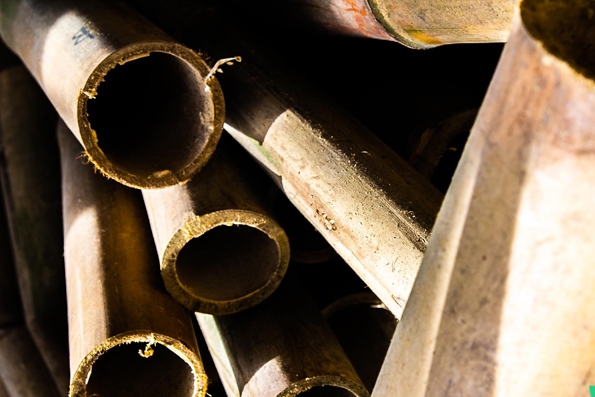
Philippines scientists develop greener bamboo textiles
YarnsandFibers News Bureau 2021-10-21 11:46:18 – PhilippinesScientists in the Philippines have developed environmentally friendly methods for producing bamboo fibers that preserve the antibacterial and UV-blocking qualities of bamboo. Bamboo is currently converted into textile material via cellulose regeneration, which does not preserve the qualities of bamboo textile fibers.
The Philippine Textile Research Institute of the Department of Science and Technology (DOST) created the technologies to generate greener bamboo textile products (DOST-PTRI). Bamboo textiles are gaining popularity as a sustainable and environmentally-friendly textile resource and manufacturing option.
The DOST-PTRI Bamboo fiber extraction method was originally created in 2015, and an application to protect intellectual property was filed with the Intellectual Property Office of the Philippines (IPOPhil). To liberate fibers from the bamboo culm, mechanical, chemical, and biological techniques are used. The bamboo textile fiber is removed and processed to produce highly cellulose textile fibers.
The method generates strong and fine bamboo fibers from many bamboo species in the Philippines, including Kawayan Tinik (Bambusa blumeana), Bolo (Gigantochloa levis), Yellow Bamboo (Bambusa vulgaris), and Giant Bamboo (Dendrocalamus asper).
Mild and environmentally friendly technology, combined with the ease of extraction and treatment, makes it ideal for textile fiber processing in distant bamboo-rich locations, resulting in economic gains for the bamboo textile sector.
Bamboo culms are broken down into chips, dissolved, and extruded through spinnerets to form fine staples or filaments in the more prevalent commercial process of converting bamboo into textile material, cellulose regeneration. New fiber qualities are introduced although the natural integrity of bamboo textile fibers is not preserved in this synthetic approach. The procedure is also linked to the manufacture of harmful and toxic substances.
Other natural textile fibers, such as bamboo, have been included in the proposed revised Implementing Rules and Regulation (IRR) of Republic Act 9242, or the Act Prescribing the Use of Philippine Tropical Fabrics for Uniforms of Public Officials and Employees and for Other Purposes, to help widen the scope of textile fiber sources and promote employment generation in the countryside. This market comprises 635,000 kg of treated bamboo fiber input material for spinning yarns that will only meet 25% of the government standard requirements.
Market Intelligence
Ask for free sample Report

experience
Customer Base
dedicated team
Countries Served Worldwide









